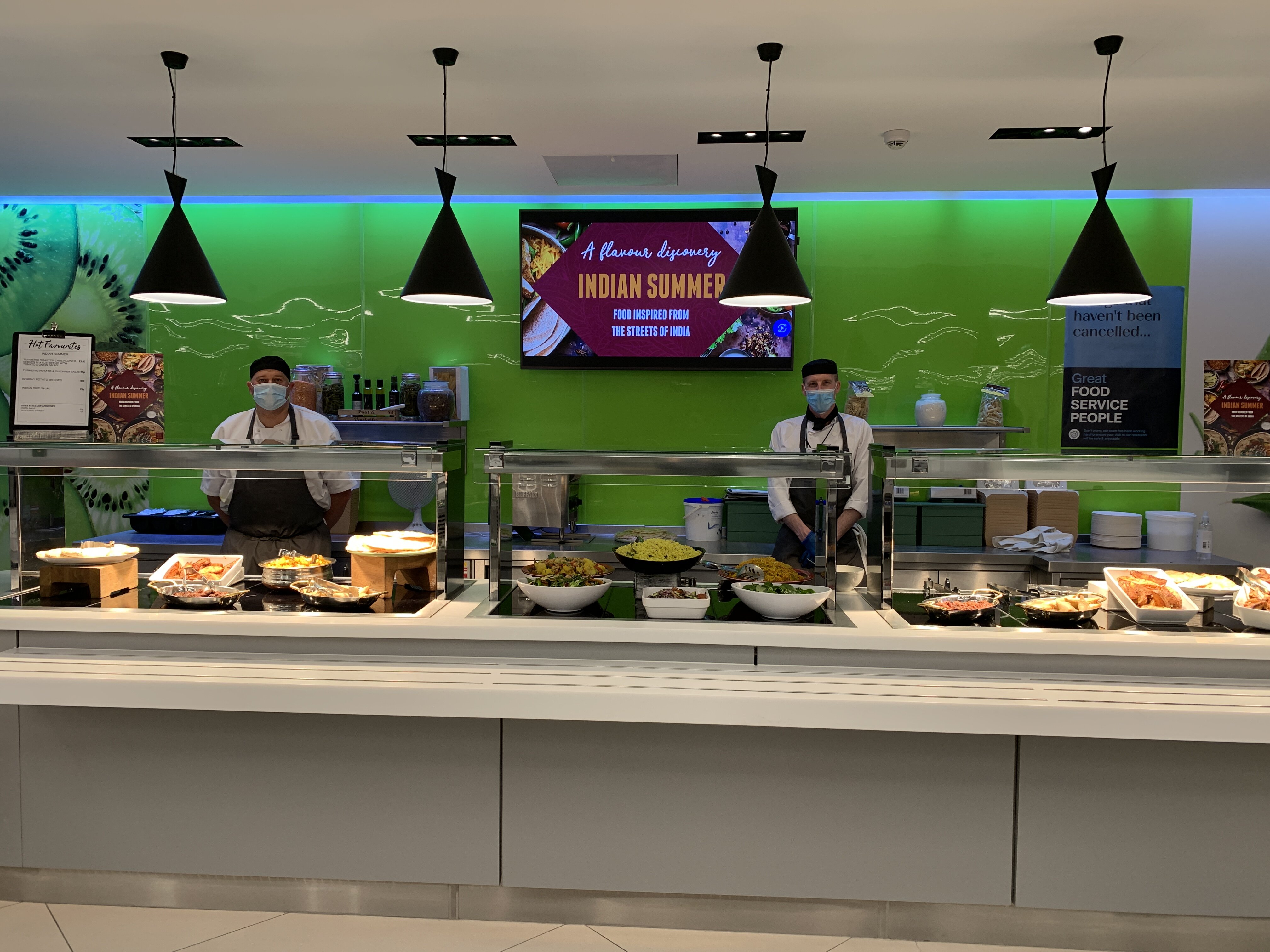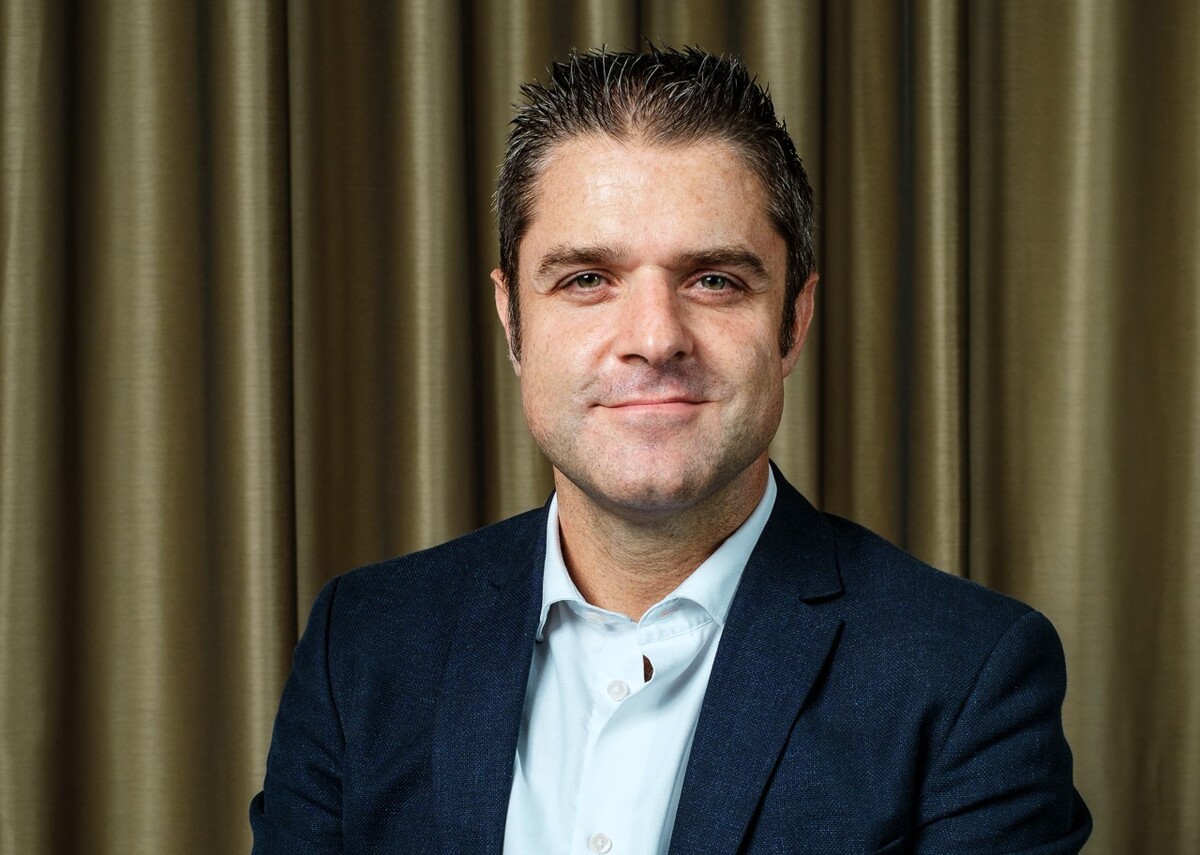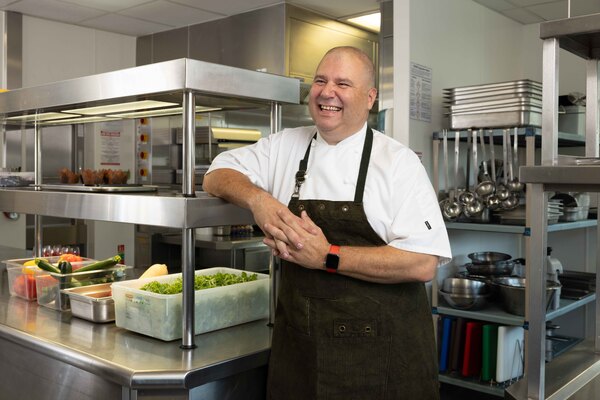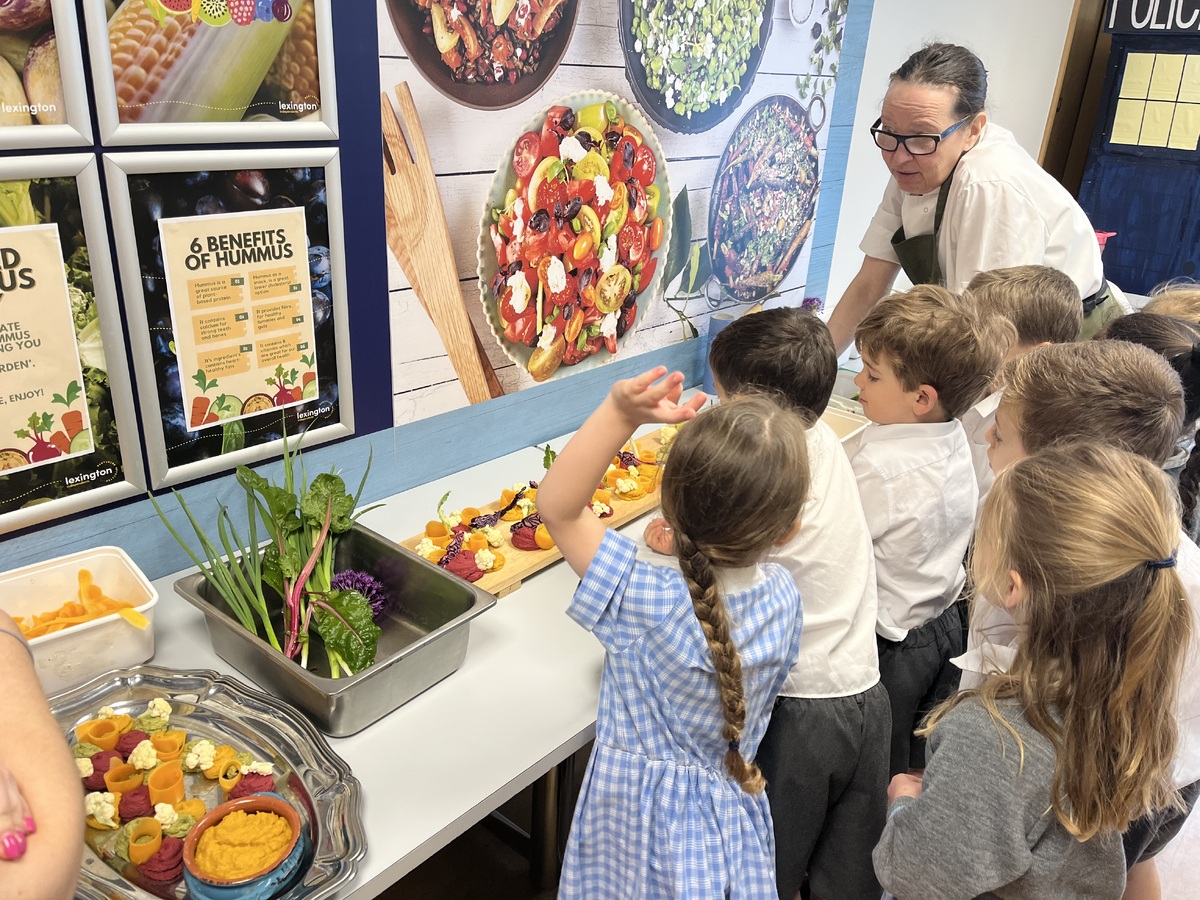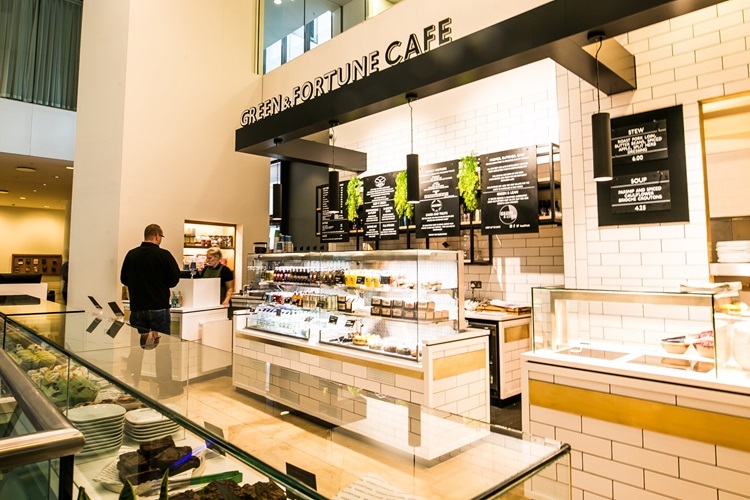Ready to go: the future of workplace catering
When the UK’s offices begin to fill back up, their caterers will be ready with refreshed restaurants, refined product offers and geared up for a new way of operating. Chris Gamm spoke to seven business and industry leaders to find out how workplace catering has changed forever
Meet the operators
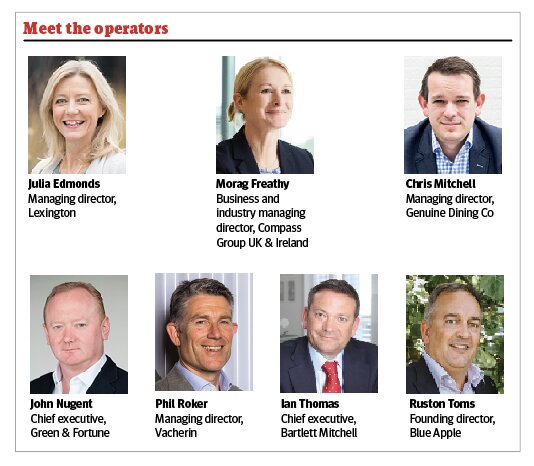
What impact do you expect coronavirus to have on business and industry [B&I] turnover in the next 12 months?
Phil Roker (PR): There is no doubt that the return to ‘normal’ is going to be slow and protracted. It’s inevitable that even when offices do start to open up, they will not be at full capacity and will therefore not require the scale of catering offer that was available prior to lockdown. However, we do anticipate that our staff restaurants and cafés will continue to be well-used by those in the building to minimise social contact on the high street.
That said, turnover is going to be severely reduced in initial stages, and our expectation is that it will take up to 18 months to return to pre-virus levels of turnover.
John Nugent (JN): Revenues will be decimated in the medium term and recession is highly likely. Culturally, how we serve the workplace and the public will change. Relationships will be key to get through this period, both with customers and the partners we work with. It should lead to far more openness and frankness in the broader sector. Innovations, and not just technologies, will deliver a new foodservice model.
Ian Thomas (IT): As far as behaviours go, people will be less prescriptive on start and finish times for their working schedule and therefore an all-day service with longer operating hours, or seven-day working, could be required. What is clear is that hospitality, fine-dining and events in workplace environments are likely to have the biggest downturn in the first instance, with meetings and events moving online. Some clients intend to ban visitors for 12 months, so this will be a major contributor.
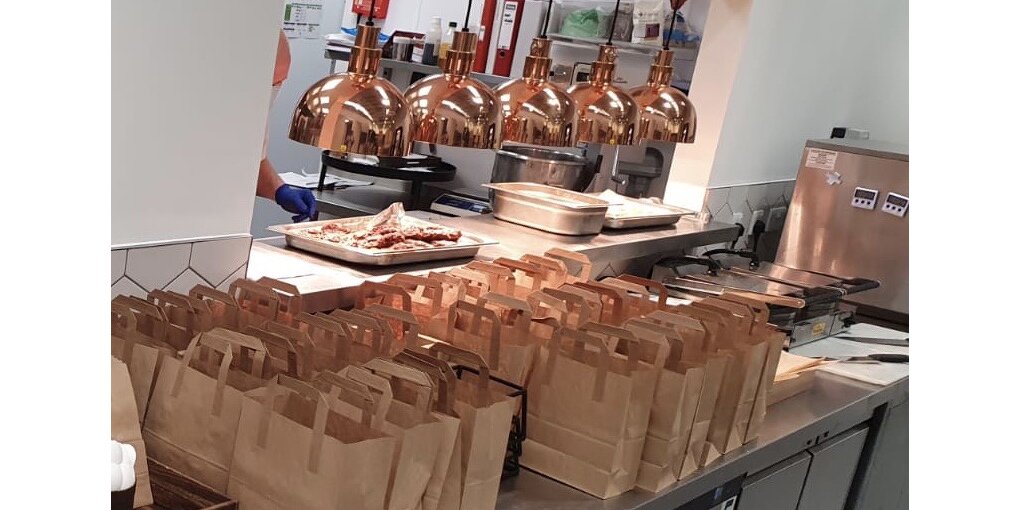
Morag Freathy (MF): We are in the blocks and ready to support clients and customers when they come back. It’s about being as ready as possible to confidently deliver a safe foodservice offer that will encourage our customers back to workplace dining. B&I has a unique opportunity to be able to influence the nation’s eating habits and I believe we will see a new appreciation of the true value of health and wellbeing.
Chris Mitchell (CM): The challenge is getting our people back into the workplace doing what they do best. I think about how people are going to be travelling to offices – on the underground or train – and how much social distancing is practical. It’s not practical for many of our customers or staff to ride bikes or walk to work, so we will have to wait and see how clients deal with this. It’s going to affect numbers of people in offices or more likely lead to a lack of social distancing on public transport.
How are you addressing this, such as seeking new revenue streams?
JN: We must work with our landlords and partners to very quickly understand and be part of their recovery strategies. Services are being realigned and some discarded in the short term. Being nimble is key. Using the versatile spaces that we have in our buildings differently will assist with social distancing. Creating single-item food hubs in parts of buildings can deal with pre-ordering and eliminate queuing.
Having quality data is important. The financials are moving and changing so quickly now. We are in a period of constant forecasting.
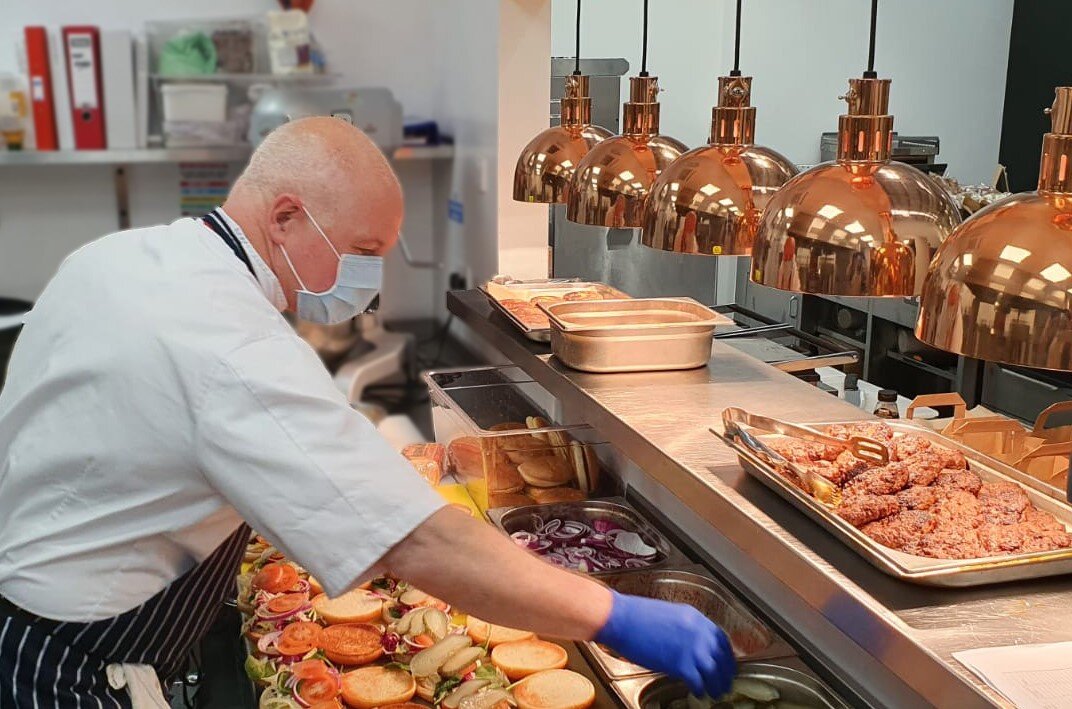
IT: We believe that there is an appetite from clients to offer customers the ability to get their home kitchen staples from our new retail offer, along with healthy ‘cook yourself’ meal packs to take home. Having this service will minimise the need to go to supermarkets and therefore reduce any health risks.
What changes are you making to operations and technology?
Julia Edmonds (JE): We are completely adapting our menus to simplify the process and allow for all food to be packed to take away, and we are working closely with each client to redesign their offer and service space. We are also looking at new technology, such as virtual hosts, and proximity technology for managing customer flow and social distancing.
PR: In response to social distancing requirements, functionality has been added to our app that enables time slots to be allocated to staff restaurant users, alongside existing click and collect capability. Other changes will include a move to wrapped and pre-packed food; extended service times; extensive signage regarding access to and use of catering areas; clear signage for distancing at counters and reduction of seating.
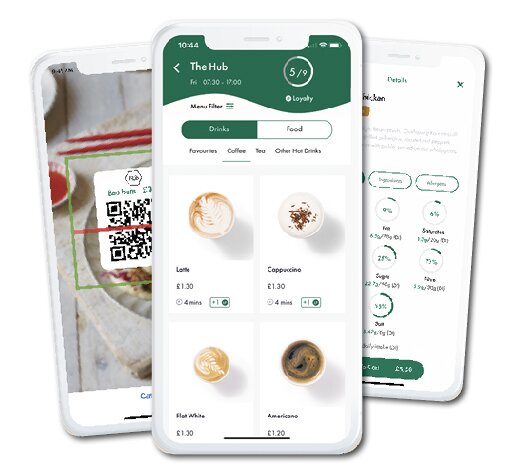
MF: Our changes include extending opening hours to allow people to spread out their visits, offering to-go grab bags and click and collect, as well as contactless payment and a pre-ordering. We are highlighting healthier options that can support the immune system as we know this is a key consideration for our customers.
JN: The current situation will force us all to look at what has been the norm. Traditional counters, salad bars and the ‘abundance approach’ of food retailing will change initially. We will be forced to be more focused on certain products in the short term. Pre-ordering on certain days will allow for more innovation and choice due to having some certainty of building occupancy. As of now we have to assume that social distancing will destroy the traditional staff restaurant environment and all food will be pre-portioned and wrapped.
What measures are you putting in place to keep guests and staff safe and informed of the changes you’re making?
JE: We have been keeping our team informed with developments as they happen and will be sending a pack to staff before they return to work, which will include information to prepare them for changes and to address any concerns.
We are also rolling out a new training programme providing a series of practical workshops to ensure everyone has the right information about social distancing, our new cleaning regimes, health and safety and how to communicate with customers about the new service. We have also been placing greater focus on employee wellbeing through what is a very challenging time for everyone.
Ruston Toms (RT): We are following current government guidance with regards to keeping customers and staff safe. We have introduced floor distancing markers, all food is packaged, our staff use PPE and have daily personal temperature checks and all transactions are contactless.
An immediate problem we foresee and are already experiencing is the cost and continuity of supply of PPE. The dining areas, if used, are sanitised between customers and signs indicate sanitised or non-sanitised tables and chairs. We are using in-house social media platforms to keep our staff informed.
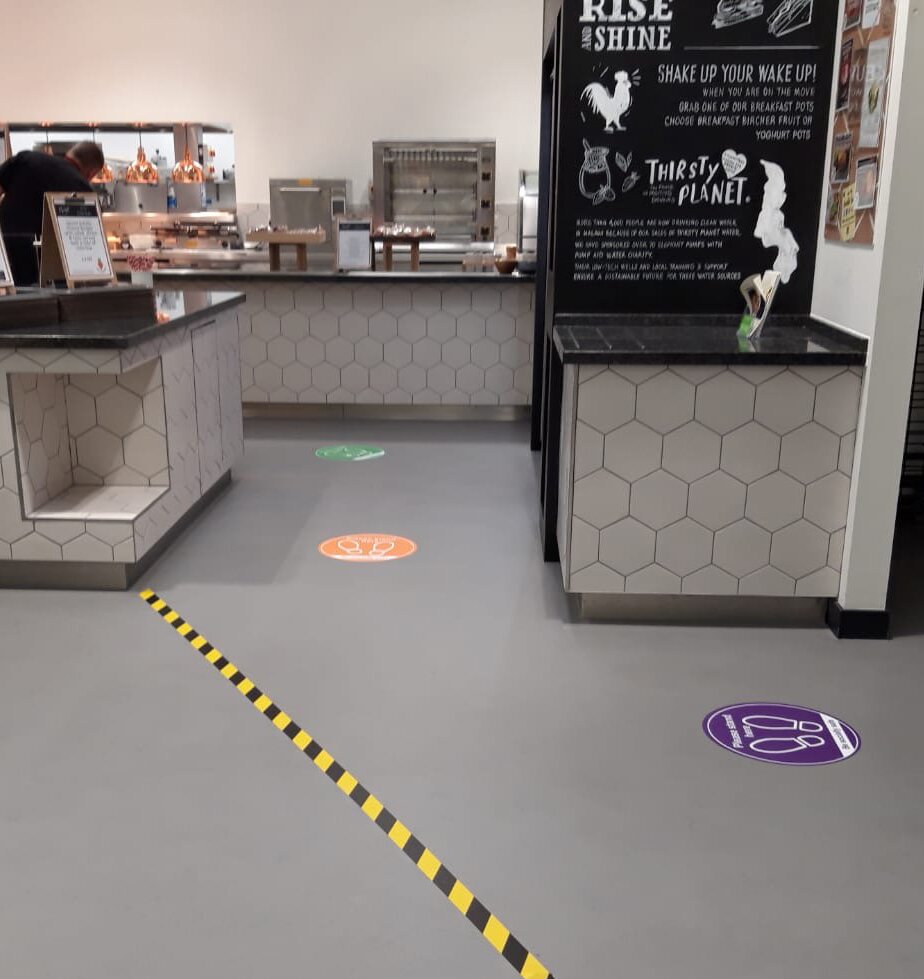
MF: Our 14forty facilities management team has developed a suite of training materials to enhance cleaning in catered and dining areas. While hygiene has always been important, it is now more important than ever that customers can see a high presence of cleanliness and sanitation. Our staff are equipped with both masks and transparent visors. Many of our front-of-house team are keen to ‘share their smile’ and want to wear visors while serving.
CM: We are working with UKHospitality to come up with an industry-wide strategy that all caterers can adopt to form best practice. This is a work in progress and as the government releases expectations on how we should work, it will continue to be updated.
What support do you need from clients?
IT: The key is to make sure that we are working on a building master plan with every one of the service providers to deliver the safest and most efficient building operations. This ranges from security, cleaning, facilities management, reception and even extends to our landlords.
Crucially, it is important that lead times of when they would like to reopen are communicated as early as possible so all the initiatives, procedures and equipment can be in place. This will have a knock-on impact to our suppliers too.
JE: It’s about being able to respond quickly and adapting to clients’ needs, so sharing information, having a clear strategy about building re-occupation and working together to find the best solution for them – for example, staggering mealtimes and working patterns to limit the number of people coming into the restaurant space.
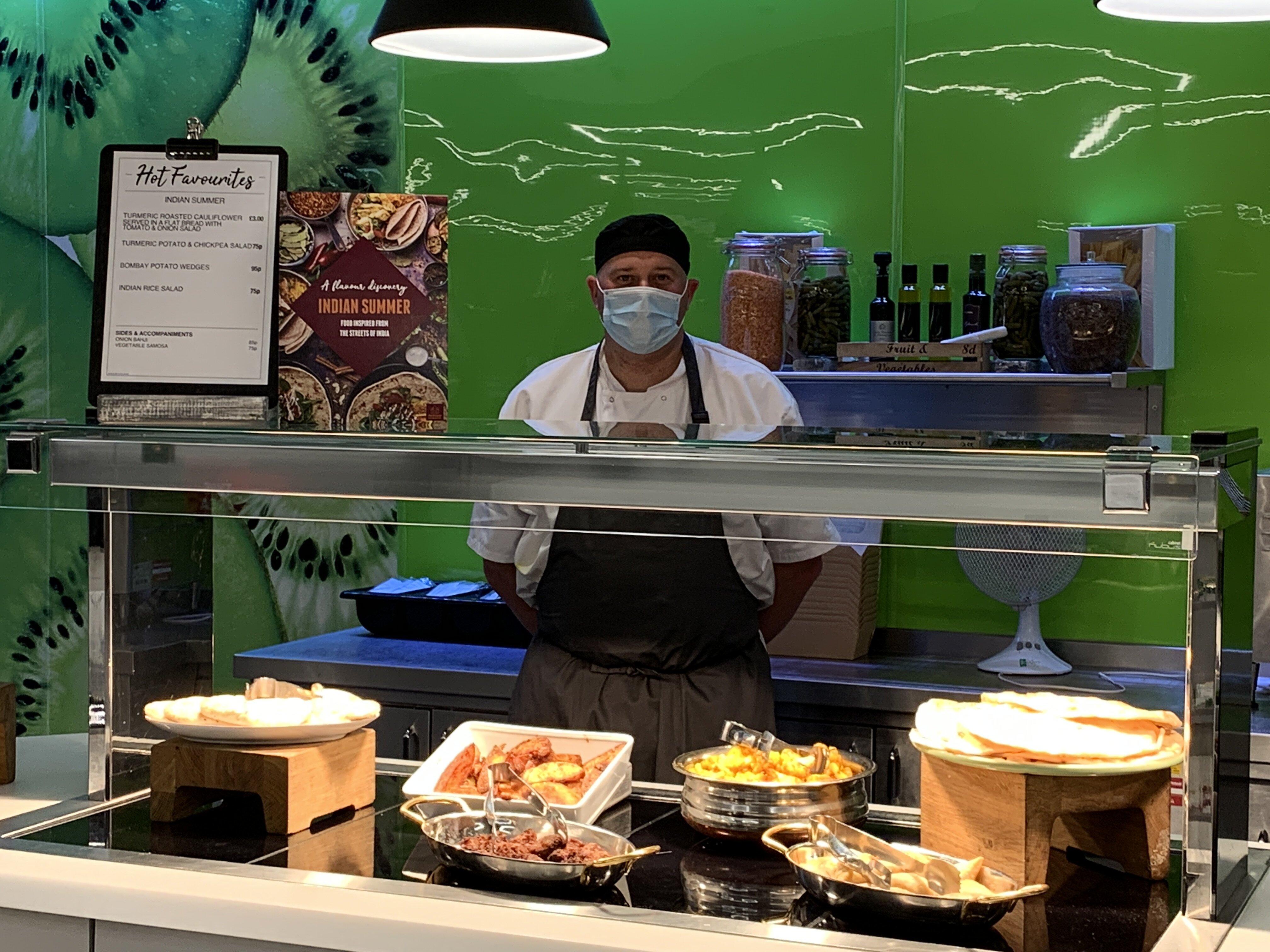
What do you envisage the market to be like for new business?
CM: I think it will be a mixed bag like it is now. Some clients may still decide to change if they’re not happy with the service they receive, while others that were going to tender may not. I do think there will be opportunities to get new business after this.
MF: We are already seeing contract extensions as clients want to work through the next 12-24 months together without distractions and disruptions of market testing. We have also seen new business opportunities during lockdown and, with our experience, capabilities and stability of partners, I expect many clients to have shifted their attention to these valuable assets.
RT: Against expectations, we have won new business during lockdown. However, this is probably the exception rather than the norm, as we expect the market to be flat until next year.
In terms of business priorities, I think that many clients will not see tendering the catering service as very high on their list of priorities. A small caveat though is that as subsidies are likely to increase it might stimulate some clients to re-evaluate their contracts.
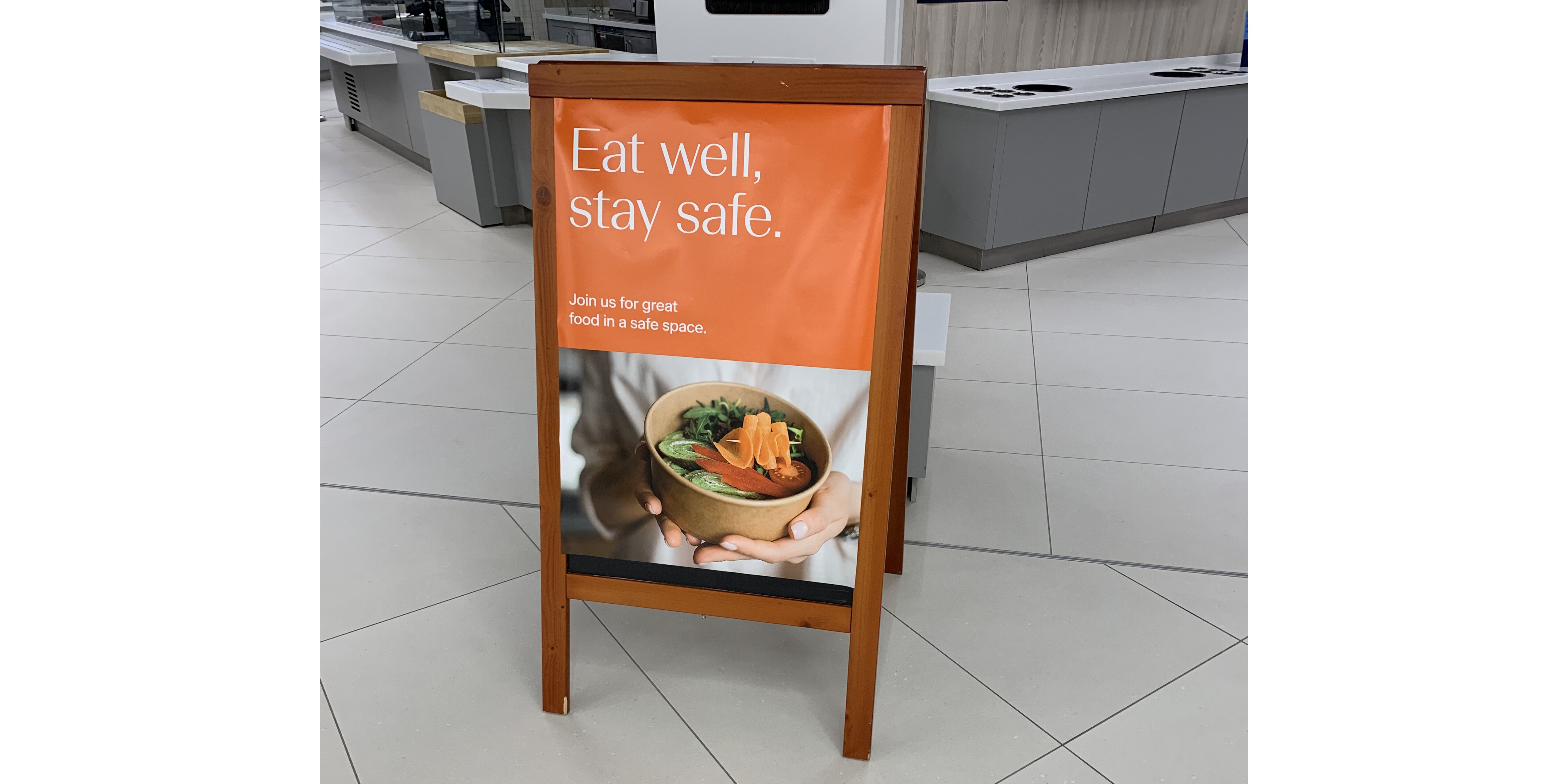
IT: Those clients that do tender will either be searching for aggressive cost savings or they will be seeking catering providers that have been agile and creative. They will need partners to be able to accommodate the new normal, maximising the opportunity of diversifying what they do to improve the employee welfare proposition.
How are you expecting consumer behaviour to change post-lockdown Might guests rather use your services over queuing on the high street?
CM: Yes, I think that in-house catering is an integral part of people’s daily work life. We offer a much safer environment for our customers to eat in where we can control safety elements with clients. I also think that people feel naturally more comfortable at work and catering services and teams are part and parcel of being at work.
JN: There is every chance that the perception for our sector will change very positively. It is easy for peoples’ heads to be turned by new entrants on the high street or the local food truck that turns up nearby. In this new world, getting our message and food innovation right should allow for greater appreciation of what is sometimes regarded as ‘in-house services’.
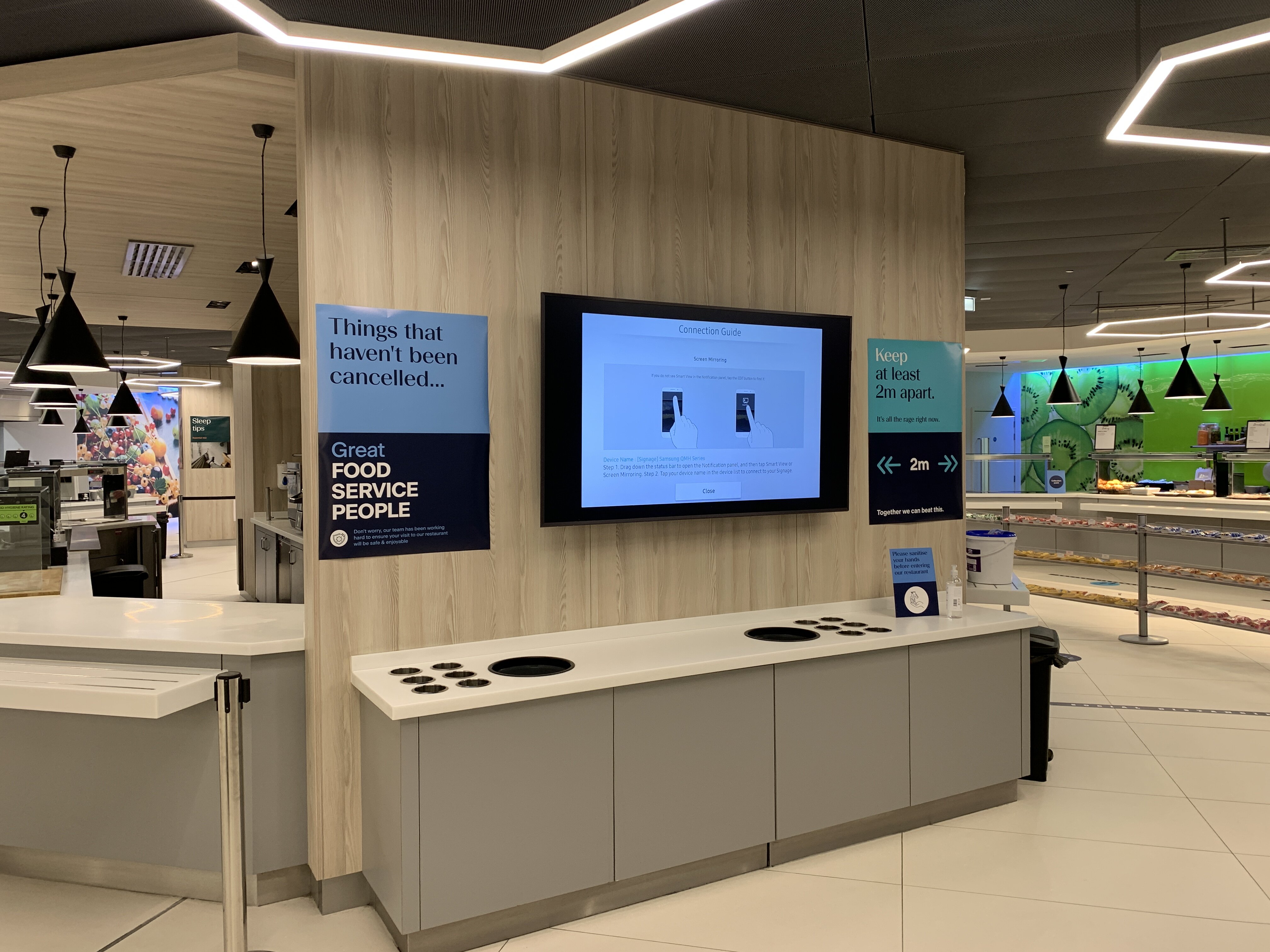
RT: It seems as though social distancing is here to stay for the foreseeable future. Therefore, we do feel we have an advantage over the high street. Workplace catering operations can be controlled and monitored in a far stricter way than the high street. We’ve been in dialogue with many of our clients over the last few weeks and we are busy devising a back to work programme. They will all be adopting new working practices that mitigate the chances of cross-contamination between employees. An overriding requirement will be that once employees are at their place of work, our clients would like to keep them there to reduce social interactions outside of the premises.
Workplace catering operations can be controlled and monitored in a far stricter way than the high street
PR: One consideration that we are discussing with clients is temperature checking of all staff entering the building, so if this is in place, we believe that on-site catering facilities can represent a far more controlled and therefore safer environment than the random nature of the high street.
What’s your vision for the future of workplace catering?
RT: There’s a few ways of looking at this. It could be argued that clients may shy away from providing restaurants and cafés, due to the likely increased subsidies required, plus over-regulation from government. Or they may see operating an on-site catering service as a way of keeping their buildings self-contained and therefore discouraging workers from moving in and out of the building with all the risks this entails.
Dwell times will be a thing of the past and customers will eat in isolation at their desks. This will dictate that operators provide portable food concepts that employees can eat flexibly. We don’t necessarily see this as all doom and gloom. Our industry does and will adapt to the new foodservice landscape, whatever that is.
CM: I think it’s largely the same as it is now, as people enjoy the service that contract caterers supply. I think it’s going to change for a period of time while people readjust to the new ways of working. Will we see self-serve salad bars again? Of course we will. It’s just a matter of time before people feel confident to use them again.
One of the biggest frustrations is the influx of single-use plastics that will have to be reintroduced to service in order to keep food safe and make customers feel safe. This is something we will have to address as soon as practically and safely possible.
JE: Over the past few weeks I have been touched by how the hospitality industry has come together to support one another and our communities. There are so many great examples of this, from the Hospitality4Heroes Challenge to the numerous examples of how caterers have teamed up with charities and individuals donating their time. It confirms that we work in an amazing, creative, resilient industry that really does care about others. I’d like this to continue in the future.
PR: I sincerely hope that we can eventually get back to somewhere close to where we were prior to this crisis, where workplace catering is seen as vital to social cohesion, mental and physical wellbeing, as well as to recruitment, motivation and retention of key talent. However, there will be lasting effects of the crisis, which I expect to be a continuation of enhanced cleaning standards, and the end of cash, sadly.



